You can do nothing:
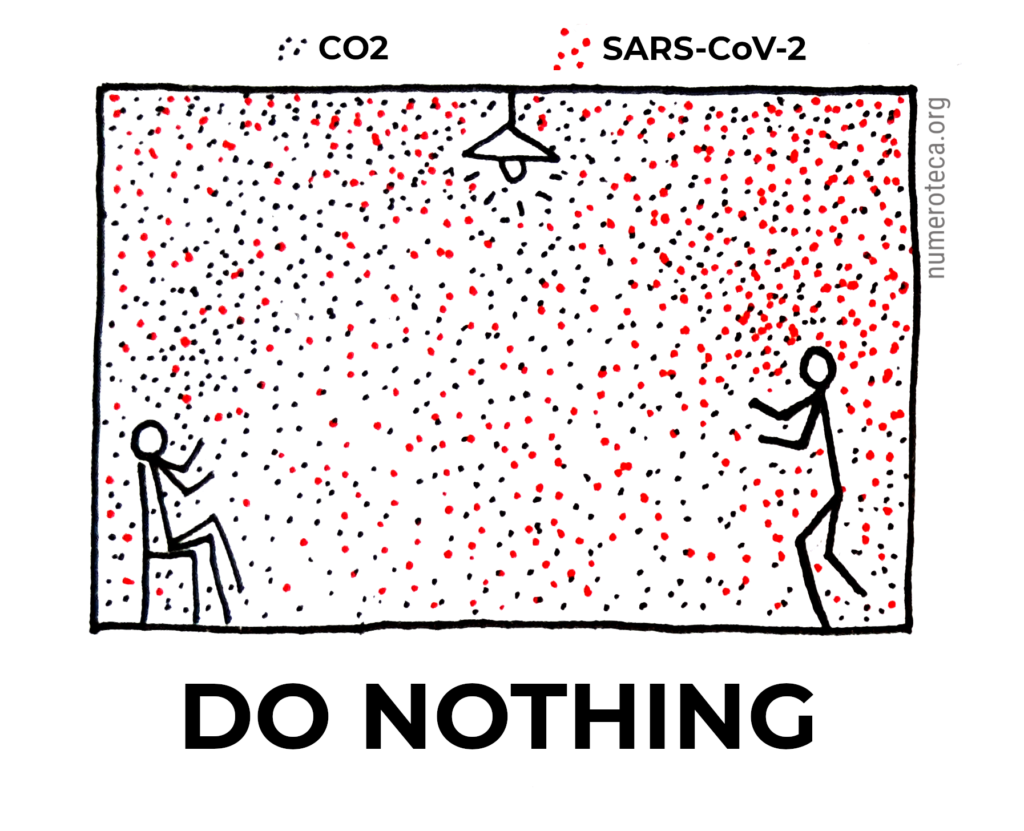
If you want to reduce viral transmission through indoor aerosols, of SARS-Cov-2 and other viruses, three methods can be applied to the air to reduce the chance of infection:
You can ventilate. With ventilation you expel the air with the aerosols outdoors, and introduce outdoor virus-free air. This can be achieved by opening doors and windows or adjusting the HVAC system to introduce more outdoor air. Note that moving air around with a recirculating forced air system, window air conditioner or minisplit air conditioner unit, or with a fan, is not ventilation in this sense, only air mixing.
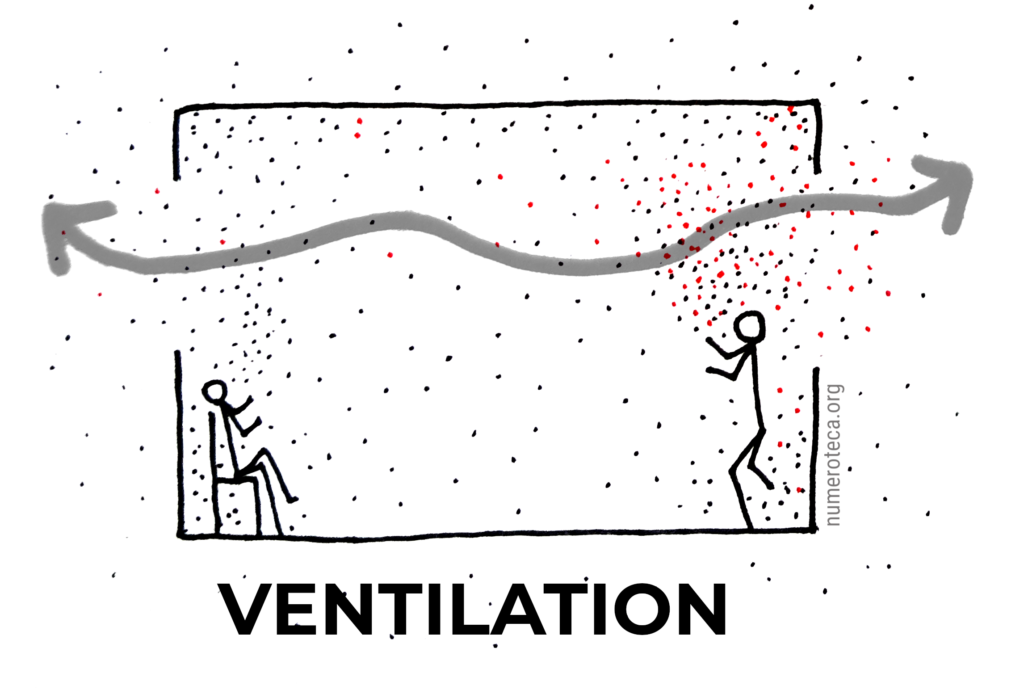
You can filter. With filtration you keep the air indoors, but remove the floating aerosols. In environments where air is recirculated, or there is inadequate flow of outside air, stationary HVAC systems or portable air filters (e.g. HEPA filters or Corsi-Rosenthal boxes) can remove the virus and other contaminants from the air.
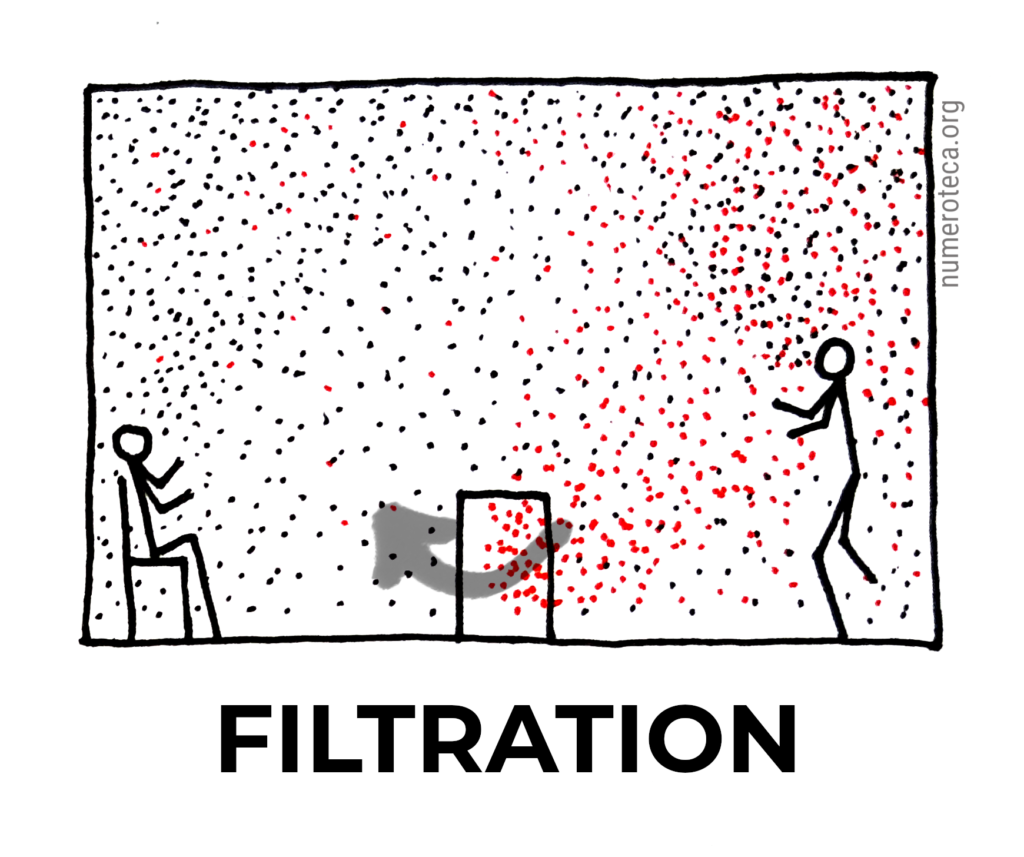
You can disinfect. With disinfection you keep the air and floating aerosols indoors, but “kill” (inactivate) the virus.
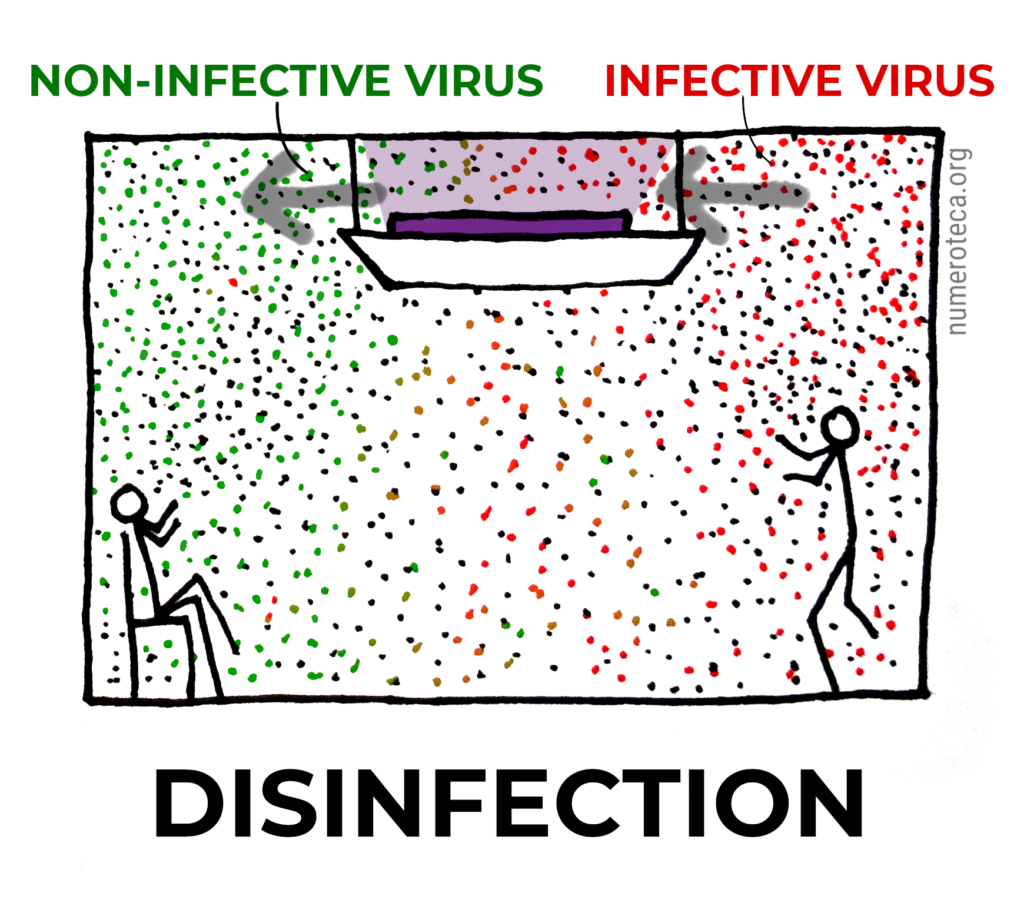
A summary of the four situations:
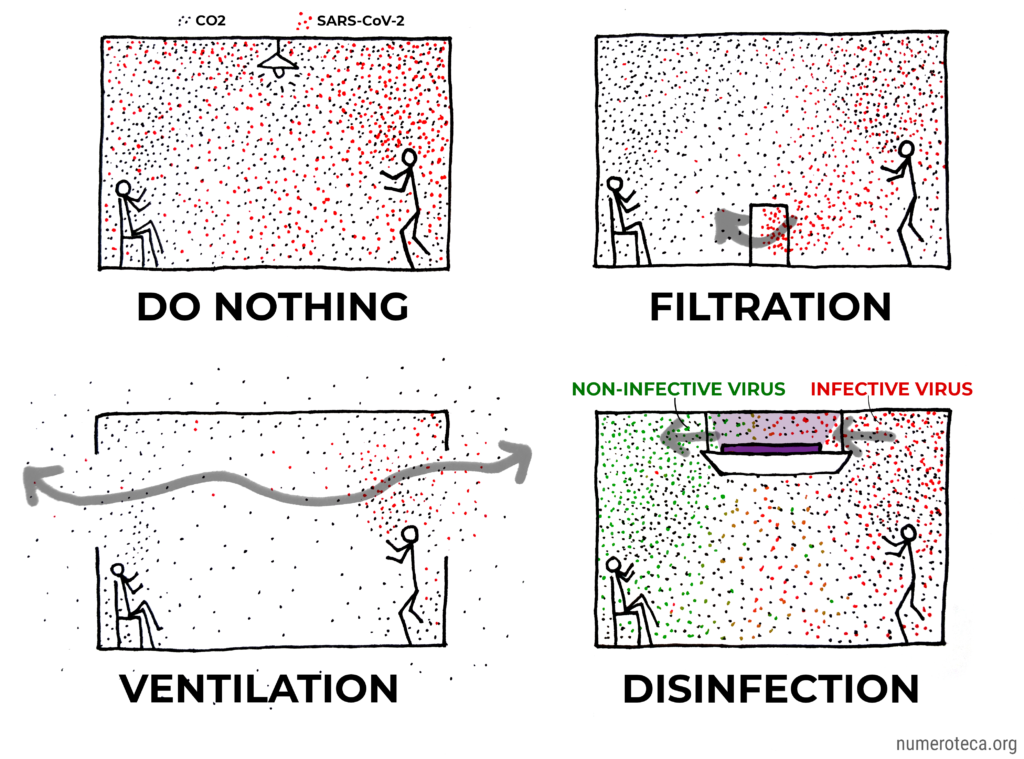
Update (2023-07-24): I’ve made a version in blue-red for people with color blindness:
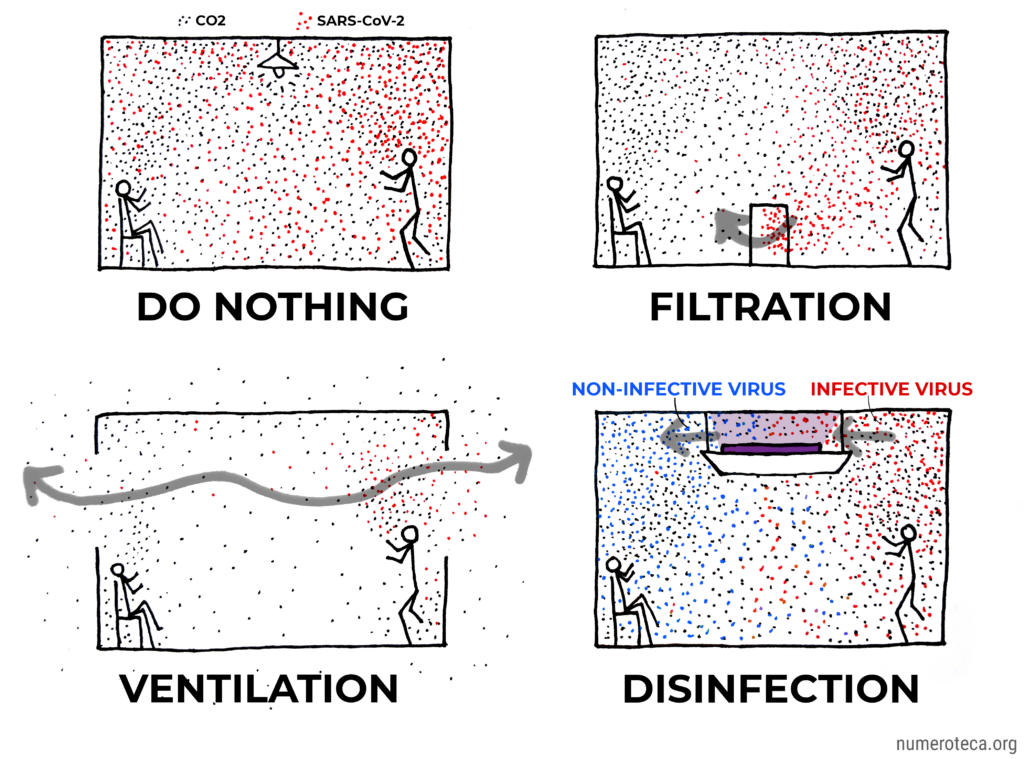
These are all drawings, in real life you’ll not see things floating in the air:
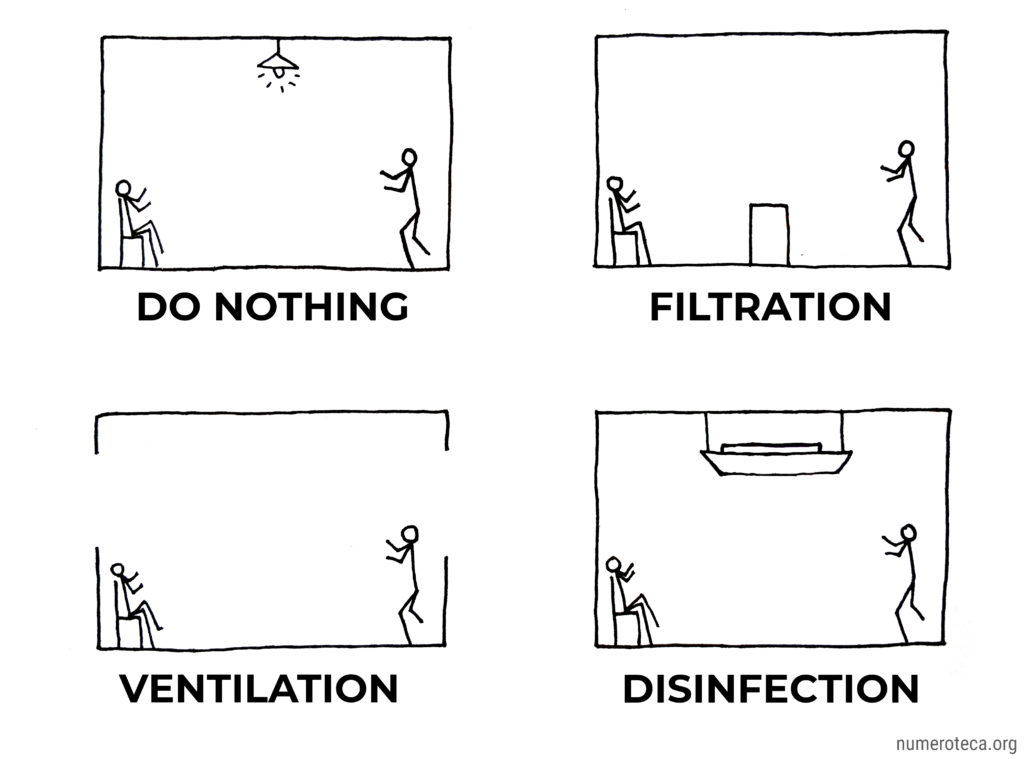
Made in collaboration with Jose Luis Jiménez.
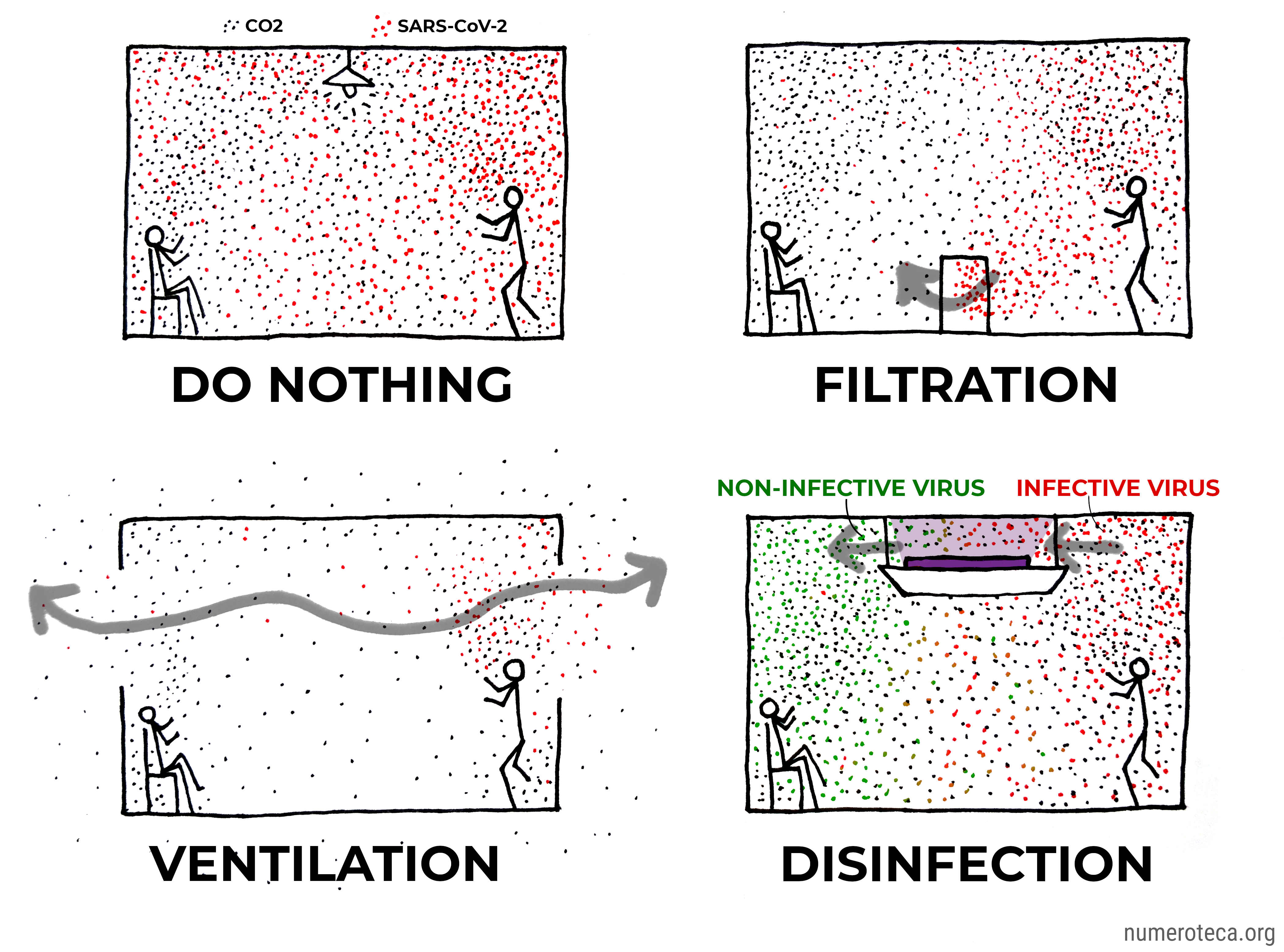
Susan Hill Davidson says:
Great diagrams and so easily understandable. Can I use in some health department guidance please?
numeroteca says:
Sure, that’s what they are made for.